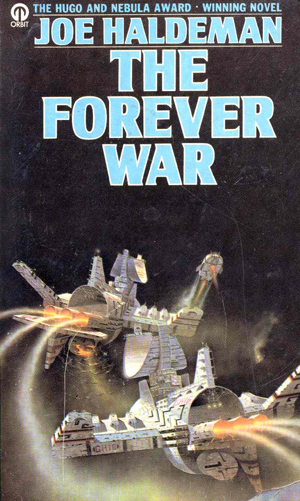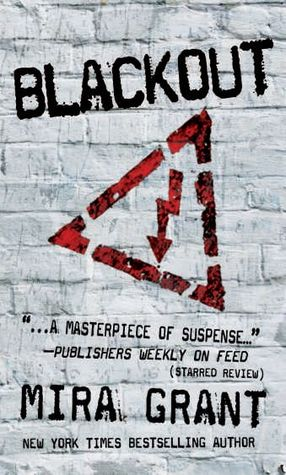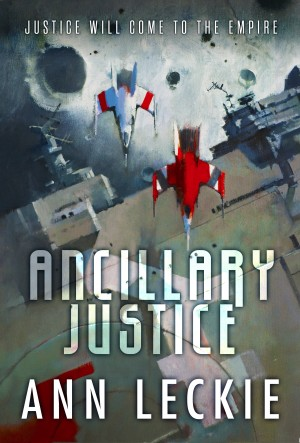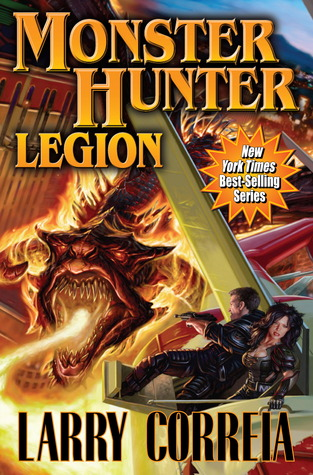This years Hugo Awards controversy is confusing. There are two kinds of puppies! Are the puppies against diversity, or literary snobbery? And so on. But really, this is all about books, and particularly what kind of books were supposed to celebrate. So here are eight books that can help you understand the Hugo mess.
But first, heres what happened to the Hugo Awards, in a nutshell. Conservative authors Larry Correia and Brad Torgersen created the Sad Puppies voting slate to get the kind of authors that they felt were being unfairly neglected onto the Hugo ballot. (Anyone who buys a supporting membership in the World Science Fiction Convention can nominate works for the Hugo and vote on the awards, and it doesnt take that many votes to nominate something.)
The first year, this was a small, limited effort. But last year, they succeeded in putting more nominees on the ballot, including Theodore Vox Day Beale, who had been notorious for using the Science Fiction and Fantasy Writers of Americas official Twitter account to send racist tweets . This year, they went all-out, stuffing the nominations ballot enough to fill it with their chosen picks. (And Beale, who organized a Rabid Puppies slate of his own, was vastly more successful.)
The upshot? This years Hugo Ballot is much more male-dominated than during the brief period from 2010-2014 when the nominations were reaching something like gender parity . And a staggering number of the nominations went to John C. Wright (a Catholic author whos become notorious for his homophobic rants) and/or authors from Beales own tiny publishing company, Castalia House. (Beale himself scored two Best Editor nominations.)
But all the discussions about the Puppies, pro and con, tend to bog down in generalizations. So lets get specific. Here are eight books that can help illuminate this mess. Because this is about books, or its about nothing at all.
1) The Forever War by Joe Haldeman (1974)
What its about: An endless star-spanning war, in which time dilation means that a single soldier lives through other peoples lifetimes. Homosexuality becomes the norm on Earth, and William Mandella has a hard time adjusting to a world where hes the old queer. And meanwhile, it turns out the war was caused by a misunderstanding.
 Awards won: The Hugo, as well as the Nebula and the Locus Award
Awards won: The Hugo, as well as the Nebula and the Locus Award
What people have said about it: This is an enraged and enraging classic that deserves a place alongside Apocalypse Now and The Deer Hunter as an expression of the pain caused by Vietnam. The Guardian .
What we said about it: [The Forever War] is famously considered a markedly antiwar response to Robert Heinleins Starship Troopers , which, as has been previously noted here , is a fantastic, rollicking read that is really a thought experiment about what an ideal military force would be like, but which has drawn a fair amount of fire because of how completely it evades any serious reflection on the possible downsides of soldierhood. Like a lot of entertainment, science fiction has a history of engaging with themes over and over again, and presenting them with greater nuance and believability or sophistication with each major recurrence of a riff.
What the Sad Puppies have said: Torgersen, in particular, has tried to claim that fun, adventurous books tended to dominate the Hugos in the 1970s and 1980s. He wrote : Thats what Science Fiction & Fantasy was always about: the rip-roaring good story... A few decades ago, if you saw a lovely spaceship on a book cover, with a gorgeous planet in the background, you could be pretty sure you were going to get a rousing space adventure featuring starships and distant, amazing worlds.... These days, you cant be sure. The book has a spaceship on the cover, but is it really going to be a story about space exploration and pioneering derring-do? Or is the story merely about racial prejudice and exploitation, with interplanetary or interstellar trappings? ... You can have issues in your SF/F but I fear the issues have overtaken the adventure.
[Other past Hugo Award recipients we could have put here include A Canticle For Leibowitz , Stranger in a Strange Land , The Left Hand of Darkness , To Your Scattered Bodies Go , The Dispossessed , Where Late The Sweet Birds Sang , Dreamsnake , The Fountains of Paradise , and a few others.]
Amazon | BN | Books Inc. | Powells
2) Jurassic Park by Michael Crichton (1990)
What its about: One of the most famous science fiction novels of all time, Crichtons book about de-extincting dinosaurs to put them into a theme park was turned into an iconic movie by Steven Spielberg.
 Awards won: None. In fact, Crichton never received a Hugo nomination, something the Puppies have seized upon as evidence of bias. (See below.)
Awards won: None. In fact, Crichton never received a Hugo nomination, something the Puppies have seized upon as evidence of bias. (See below.)
What the Puppies have said: Brad Torgersen, a Sad Puppies organizer, says that the Hugos have long strayed from the larger body of fans and disdained whats popular. Michael Crichton, the author of Jurassic Park and other blockbusters, was never nominated for his books, Mr. Torgersen notes. Some of us decided to get active about pushing back against the blind spots. The Wall Street Journal
What other people have said: Since the publication of The Andromeda Strain in 1969 until today, as The Lost World sets new box office records, Crichton has been, in a commercial sense, the most consistently successful SF writer of the late 20 th c. In large part this is because he has not been labelled as an SF writer, and thus worthy of adult attention. Thomas M. Disch, The Dreams Our Stuff is Made Of .
There are a number of writers of SF Ill briefly consider speculative fiction in general before turning to science fiction specifically who have never written genre fiction. That is, at least as far as the publishers and bookstores are concerned... writers like Stephen King and Michael Crichton have never been marketed as genre writers. Mike Brotherton .
[Crichton has] gone to sometimes frantic lengths in order not to let [his] books be labeled science fiction. David Brin , writing in 2005.
Amazon | BN | Books Inc . | Powells
3) Monster Hunter Legion by Larry Correia (2012)
What its about: The fourth book in Correias Monster Hunter Nation series, this book follows his team as they try to recapture an escaped World War II experiment, in Las Vegas.
What people have said about it: A large part of the attraction of these books is the glorious action-movie feel to them. Sometimes you just want to read a book about blowing up the gribbly things with lots of explosions. Its not exactly the highest or more sophisticated desire, but it still makes them pretty fun reads. Fangs for the Fantasy .
The fourth title (and first hardback) in Correias popular series... features fast-paced battle scenes, tongue-in-cheek humor, funny, likable characters, and an appropriate amount of gore. Readers of urban fantasy and military SF, as well as series fans, will enjoy this adventure. Library Journal
[This is an] action-packed, fantasy-filled story. With that said, parts of the story can be a little reaching and convenient at times. Deseret News
What the Puppies have said: This is the book that launched the Sad Puppies campaign. In a January 2013 blog post called How to get Correia nominated for a Hugo , Correia wrote, The fact that I write unabashed pulp action that isnt heavy handed message fic annoys the literati to no end. When I got nominated for the Campbell [Award], the literati message-fic crowd had a conniption fit. ... Just imagine with me [the choice if this gets nominated]: Should I vote for the heavy handed message fic about the dangers of fracking and global warming and dying polar bears and robot rape as a bad feminist analogy with a villain who is a thinly veiled Dick Cheney? Or should I vote for the LAS VEGAS EXPLOSION SHOOTING EVERYTHING DRAGON HELICOPTER CHASE ORC SACRIFICING CHICKENS BOOK!?! ... And heres the kicker, it doesnt take very many votes for something to actually get nominated! I was shocked how few it was.
Correia later wrote : Do I think that novel of mine was one of the greatest works of 2012? Nope. But since [the Secret Masters of Fandom, a term for convention organizers] hates me, it wouldve been awesome to get it on there just to prove a point.
[Correia failed to win a nomination that year, but the Sad Puppies 2 campaign succeeded in placing him on the ballot a year later, along with Vox Day and a handful of other authors. The Sad Puppies 3 campaign also placed Correia on the ballot, but he declined the nomination this time, as did Torgersen.]
Amazon | BN | Books Inc . | Powells
4) Blackout by Mira Grant (2012)
What its about: The third book in the Feed / Deadline / Blackout trilogy, this book once again follows a group of heroic bloggers who are exposing the truth in the wake of a zombie apocalypse, in the face of a media blackout. This time around, the CDC is doing sinister experiments.
 Awards won: None. But this book did receive a Hugo nomination, and was part of a then-unprecedented sweep in which Grant (or her alter ego, Seanan McGuire) received five Hugo nominations.
Awards won: None. But this book did receive a Hugo nomination, and was part of a then-unprecedented sweep in which Grant (or her alter ego, Seanan McGuire) received five Hugo nominations.
What we said about it: We didnt review Blackout , but we reviewed the first book in the trilogy , Feed . We wrote: This fast-paced undead thriller will be great for people who enjoy their zombie slaughtering with a hearty slice of social commentary... The action scenes (crossbows!) and setting were what kept me going all the way to its very emotional end, which I think is a testament to how well-written the characters and setting are.
What other people said about it: [A]nother thoughtful high-energy tale of life and politics among the dead and not-so-dead... Zombie attacks, family members in physical and emotional jeopardy, and vast government conspiracies all contribute to a heady tale that reaches a satisfying conclusion. Publishers Weekly .
I see that Seanan McGuire is getting a fair ration of crap from various quarters because shes on the ballot a remarkable and record-setting five times, including in the Best Novel category, and twice in Novelette. What Im seeing heavily implies that McGuires on the list because she has an apparently mystical ability to drive hordes of fans to nominate her for everything no matter what. Hey, I have an alternate theory, which goes a little something like this: Seanan McGuire is a very talented writer! Who writes things that people like! Including the people who nominate for the Hugos! Seems the simpler explanation, all things considered. John Scalzi .
What the Puppies said about it: I like Seanan personally. I think shes pretty cool in person and shes a solid writer Was every novel, short, novella, and novelette she wrote one of the best five things in the world this year? Probably not. But she is popular with the [Secret Masters of Fandom], ergo she is nominated. You preach the right kind of message fic, you can get nominated. You get popular with the right crowd, you can get nominated. If you are popular enough with the right crowd the Hugos will even tweak which category you fit in so that their two favorites dont have to go head to head and both can win Hugos. Larry Correia [ via ].
To be fair, Seanan got screwed a couple of years ago for best novel [for Feed ], and had the most 1st place votes, but still lost once they worked out their weird Hugo vote tabulation magic. Larry Correia .
Amazon | BN | Books Inc . | Powells
5) Redshirts by John Scalzi (2012)
What its about: This Star Trek spoof examines what it would be like to be one of the disposable cannon-fodder crewmembers aboard the U.S.S. Enterprise... especially once you begin to suspect that tropes really are deadly.
 Awards won: 2013 Hugo Award for Best Novel.
Awards won: 2013 Hugo Award for Best Novel.
What we said about it: Redshirts isnt a straight-up satire or critique of Star Trek and similar shows which is probably for the best. Scalzi takes some of his trademark smart, quippy characters and puts them into a Trekkian reality in which theyre forced to make sense of their existence... If you love Star Trek , or classic space opera generally, you will get a lot out of Redshirts . [Full disclosure: Scalzi and I are both edited by Patrick Nielsen Hayden at Tor Books.]
What other people said about it: Anyone who grew up on Star Trek or its descendants can figure out whats going on in Redshirts . That is, until things get even funkier. Which is to say that this is a John Scalzi novel, and a reader must expect the unexpected, including a surprising emotional punch as the story unfolds, reconfigures and steps outside itself. The New York Times .
A light parody of a hoary old Star Trek trope becomes richer and more rewarding as it goes along. - The A.V. Club (B+) .
I know Scalzi is liberal, and I know that the Puppies seem to hate him, though I cant for the life of me understand why but whatever you think of the writers politics, REDSHIRTS is a light, fun, amusing SF adventure, an affectionate riff off of STAR TREK, Ghu help us. George R.R. Martin
What the Puppies said about it: The fact that [Kim Stanley] Robinson lost in 2013 to Scalzis ambitious fanfic book, is indicative of the politicized joke that the Hugos have become. Especially the Best Novel category. Robinson is and always has been the superior storyteller (vs. Scalzi) and there is no way you can convince me that Redshirts was a better story than [Robinsons] 2312 . Or Captain Vorpatrils Alliance [by Lois McMaster Bujold], for that matter. See, heres the thing. As soon as the Social Justice Warriors decided to agitate for bean-counting at the SF/F awards, the process was perniciously poisoned. For more and more voters, who or what wins is largely a question of Does the author or the story allow me to check a victim group box? as opposed to, Did this author or story sweep me off my readerly feet and transport me utterly to another, amazing world, or amazing time or place?... the focus has grown tedious and myopic. Can we check a victim box? How many beans do we get to count with this author or this book? Brad R. Torgersen
I was mildly amused to see that the Hugo Awards honored no less than five people who were involved in some way in my expulsion from SFWA. Theodore Vox Day Beale . [Note: Scalzi stepped down as President of SFWA just two months before Beale was expelled for tweeting his own racist article via the official SFWA Twitter feed.]
Amazon | BN | Books Inc . | Powells
6) Ancillary Justice by Ann Leckie (2013)
What its about: In this space opera novel, we meet Breq, a fragment of a hive mind that used to run a starship. Now shes far from home, on an ice planet, looking for something. (And Breq speaks a language with no gendered pronouns, so she uses the female pronoun as a default for everyone she meets .)
 Awards won: Hugo Award, Nebula Award, Arthur C. Clarke Award, BSFA Award for Best First Novel, Locus Award for Best First Novel, etc.
Awards won: Hugo Award, Nebula Award, Arthur C. Clarke Award, BSFA Award for Best First Novel, Locus Award for Best First Novel, etc.
What we said about it: We compared it to the works of Iain M. Banks, and wrote , Its very rare to find an author who can balance suspense and violence with subtlety and character development. But, like Banks once did, Leckie has done a marvelous job here. This is a novel that will thrill you like the page-turner it is, but stick with you for a long time afterward, infecting your perspective on the so-called familiar world around us that is a lot more alien than any of us give it credit for.
What other people said about it: A space opera that skillfully handles both choruses and arias, Ancillary Justice is an absorbing thousand-year history, a poignant personal journey, and a welcome addition to the genre. NPR
In which a zombie imperialist space cop gets caught up in a complex plot towell, this enjoyable sci-fi outing gets even more complicated than all that.... As the action picks up, one just knows theres going to be some battering and bruising out on the shoulder of Orion. Leckies novel cast of characters serves her well-plotted story nicely. This is an altogether promising debut. Kirkus
What the Puppies said about it: Heres the thing about Ancillary Justice. For about 18 months prior to the books release, SF/F was a-swirl with yammering about gender fluidity, gender justice, transgenderism, yadda yadda. Up pops Ancillary Justice and everyone is falling all over themselves about it. Because why? Because the topic du jour of the Concerned Intellectuals Are Concerned set, was gender. And Ancillary Justices prime gimmick was how it messed around with gender. And it was written by a female writer. Wowzers! How transgressive! How daring! Were fighting the cis hetero male patriarchy now, comrades! Weve anointed Leckies book the hottest thing since sliced bread. Not because its passionate and sweeping and speaks to the heart across the ages. But because its a social-political pot shot at ordinary folk. For whom more and more of the SF/F snobs have nothing but disdain and derision. Brad R. Torgersen
Amazon | BN | Books Inc . | Powells
7) The Book of Feasts and Seasons by John C. Wright (2014)
What its about: This religious story collection contains one story for each Holy Day of Obligation in the Catholic calendar. Most of the stories contain overt religious messagesin one story, a man actually travels back in time and holds the baby Jesus in his arms. In some stories, angels and saints turn up and deliver homilies. But there are also ghosts, time-travelers, posthuman animals, and aliens.
 Awards: None yet, but the stories in this book account for three out of the six Hugo nominations that Wright received this year, thanks mostly to the Rabid Puppies. (Although one of those three stories was later disqualified, because it had been previously published.) You can read the two remaining nominated stories from the book, the noir ghost story Pale Realms of Shade and the animal fable The Parliament of Beasts and Birds online. (And this book is, of course, published by Castalia House, Beales own publishing company.)
Awards: None yet, but the stories in this book account for three out of the six Hugo nominations that Wright received this year, thanks mostly to the Rabid Puppies. (Although one of those three stories was later disqualified, because it had been previously published.) You can read the two remaining nominated stories from the book, the noir ghost story Pale Realms of Shade and the animal fable The Parliament of Beasts and Birds online. (And this book is, of course, published by Castalia House, Beales own publishing company.)
What weve said about it: We didnt review this book previously, but Ive just read it cover to cover. And... its a mixed bag. Wright is an engaging writer, with a lively style, and he wears his love of Golden Age science fiction on his sleeve. The first two or three pages of Queen of the Tyrant Lizards contain some of the most powerful writing Ive seen in ages, and a few other parts are quite moving as well. Wright has plenty of terrific ideas, and his portrayal of time travel, and of time as an ocean, is clever and fascinating. But at the same time, Wright has a tendency to drive into the weeds. Some of these stories begin well, but then go flying off the rails in the middle (including Tyrant Lizards.) And many of Wrights stories revolve around a climax that has to be explained to the reader, rather than dramatizedforget show dont tell, Wright is too busy being didactic to tell an actual story. And when hes not over-explaining his plots, Wright gets lost in political rants, including the ever-present insistence that humanity is headed for a dystopian future in which we are ruled by feminists, Muslims and pornographers. (At one point, the narrator warns of a dark future of nothing but thin, ugly minarets.) Also, in one story, a heroic priest watches a man die in horrible agony, and chuckles at him. G.K. Chesterton and C.S. Lewis proved that Christian allegory can make for great storytelling, but Wright falls far short.
What other people have said about it: Happy Catholic Bookshelf says: As the theme of this collection suggests these are stories that have a philosophical and theological dimension. Yet this is not pious SF that sacrifices storytelling for piety. These are excellent stories that happen to have a deeper dimension.
But meanwhile, Lis Carey has been reviewing this years Hugo Nominees , and thinks Pale Realms of Shade is a solid story, but not at all Hugo Award-quality, while Parliament of Beasts and Birds is just awful.
Lyle Hopwood is less complimentary: The imagination is there, the drive to pound a few Catholic messages home is there, but the writing and editing are not up to the task... One thing Larry Correia was very firm on when he created the Sad Puppies was that he hated message fiction, and preferred a good old fashioned story.
What the Puppies have said about it: Im very pleased that science fiction readers so strongly supported the Sad Puppies recommendations. Its fantastic to see John C. Wright, one of the true grandmasters of science fiction, finally receiving some long-overdue recognition. Its a real privilege to publish him and were delighted to learn that his six Hugo nominations this year set a new record. Theodore Vox Day Beale , quoted in Breitbart .
Wrights written some of the deepest, most philosophical and amazing science fiction of the new century. He is wholly able to stand with the greats in the field at this time. All Sad Puppies (and apparently Rabid Puppies) did was aim the spotlight in Johns direction Brad R. Torgersen, quoted in Vox.com
8) Seveneves by Neal Stephenson (2015)
What its about: The moon blows up, and the survivors of Earth go to live in orbit, where seven women are forced to make some hard choices to continue the human race.
 Awards: None yet, but its already being talked about as a likely Hugo contender.
Awards: None yet, but its already being talked about as a likely Hugo contender.
What we said about it: One of the most exciting things about [ Seveneves ] is that its packed with realistic representations of space megastructures where humans live. - Gizmodo .
What other people have said: A truly epic disaster novel. The Guardian .
The drama of the first two-thirds of Seveneves is all in orbital mechanics and bolide fragmentation rates. Its minorly in the deciding of which few among the multitudes are going to be flung up into space in tin cans in an attempt to weather the apocalypse, but more in the ability of a scrappy, over-smart maker society to mobilize the entire earth in an effort to fling those tin cans skyward. NPR
What the Puppies have said about it: I started reading Neal Stephensons latest novel, Seveneves , and it is truly depressing. Less because nearly everyone on Earth dies than because he appears to have gone full SJW [Social Justice Warrior] with a Gamma [male] sauce. Its the first time Ive found it necessary to force myself to keep reading one of his books, and the first time one of his books has struck me as being proper Pink SF. Female presidents, token ethnic melanges, you name it, hes got it to such an extent that were it not for Stephensons past gamma [male] markers, I would almost suspect an epic, master-class trolling of the current genre. Theodore Vox Day Beale
Correction: An earlier version of this article stated that John Scalzi was SFWA president when Theodore Beale was expelled. He had actually stepped down from that position two months earlier. Also, I added a mention that anyone who buys a Worldcon supporting membership can nominate.
-------------------------------
Eight Books You Need To Know About To Understand The Hugo Awards Snafu
by Charlie Jane Anders
io9




A few weeks ago, I posted an article about the Sad Puppies dustup, drawing a massive yawn from NT membership... and a fascinating raid by Sad Puppy partisans from Baen's Bar .
Just in case anyone is interested, here's a pretty good follow-up.
Haldeman and Scalzi are good authors, IMHO. Crichton, too, I suppose, although he does not want to be considered "SF". Correia is a competent hack, churning out red meat like C4P sources. I don't know Mira Grant, but the "undead" genre doesn't interest me, so I'll pass on her... I've put Lackie's Ancillary Justice on my "to read" list. Wright's support from the Rabid Puppies is a kiss of death, as far as I am concerned. I've started a couple of Stephenson's books... but never finished one...